Cameron Park Farmers Market | Uptowne Café
01/30/20 | 26m 47s | Rating: NR
Host Luke Zahm stops by the Cameron Park Farmers Market in La Crosse and chats with Bao Xiong, a Hmong immigrant whose family has been farming in the area for almost two decades. Next, chef Adrian Lipscombe invites Luke to the Uptowne Cafe & Bakery for a southern-style breakfast.
Copy and Paste the Following Code to Embed this Video:
Cameron Park Farmers Market | Uptowne Café
Cameron Park Farmers Market | Uptowne Cafe – Transcript
– This week on Wisconsin Foodie:
[rhythmic music]
– Is this your stand?
– Bao Xiong: My parents’.
– Your parents’ stand, okay.
– Yes. My parents have been farming in Wisconsin since 2005. Food is a big part of our community. We grow local well-known produce, but we also grow things that we like to eat.
– What are you doing at the market?
– I am buying some vegetables for the Uptowne. I had a bakery in Austin and I was going to be shutting it down; this would be a great opportunity for us to come up here. For me to be able to continue on this legacy of Southern food in general, is really about the storytelling.
– Oh, my gosh! This is so good.
– Announcer: Wisconsin Foodie would like to thank the following underwriters.
– Introducing Organic Valley Ultra, milk with more protein, half the sugar, and no toxic pesticides. Let’s be honest! None of that healthy stuff really matters unless our kids will drink it.
[dramatic music, mom whispers “C’mon”]
[gulping milk]
[cow moos]
– Yeah, I would drink that.
[mom gasps]
– Do you hear that?
[mom shouts joyfully]
She would drink that!
[cheering, triumphant music]
– Parents are weird.
– Announcer: More protein, half the sugar. Organic Valley Ultra.
– The dairy farmers of Wisconsin are proud to underwrite Wisconsin Foodie, and remind you that in Wisconsin, we dream in cheese.
[crowd cheering]
Just look for our badge. It’s on everything we make.
Employee-owned New Glarus Brewing Company has been brewing and bottling beer for their friends only in Wisconsin since 1993. Just a short drive from Madison, come visit Swissconsin, and see where your beer’s made.
– Wisconsin’s great outdoors has something for everyone. Come for the adventure, stay for the memories. Go wild in Wisconsin. To build your adventure visit dnr.wi.gov.
– From production to processing, right down to our plates, there are over 15,000 employers in Wisconsin with career opportunities to fulfill your dreams and feed the world. Hungry for more? Shape your career with these companies and others at fabwisconsin.com.
– Specialty crop craft beverages use fruit grown on Wisconsin orchards and vineyards to create award-winning ciders and wines. Wisconsin’s cold climate creates characteristics and complexities that make this craft beverage unique to our state.
– Society Insurance.
Freshwater Family Farms.
Also, with the support of the Friends of PBS Wisconsin.
[energetic music]
– Luke: We are a collection of the finest farmers, food producers, and chefs on the planet.
We are a merging of cultures and ideas, shaped by this land.
[sizzling]
We are a gathering of the waters, and together, we shape a new identity to carry us into the future.
[glasses clink]
[knife scrapes]
We are storytellers. We are Wisconsin Foodie.
[tearing paper]
[guitar strumming]
– Luke: Visiting a farmers’ market in the height of summer puts the full spectrum of nature on display.
At the Cameron Park Farmers’ Market in La Crosse, Wisconsin, we find diversity not only in the goods and services offered, but in the people as well.
We’re here today to meet up with Adrian Lipscombe, chef and restaurateur of the Uptowne Caf, known for its local sourcing and Southern flavors. But first, let’s pick up some veggies.
[gentle acoustic guitar music]
[plastic bag rustling]
– These vegetables are gorgeous.
– Bao: Thank you.
– What do you have here today?
– We have some beets. We have red garlic, sweet onions, red and white, some zucchini, and kale. Some Thai basil and some regular basil. There’s dill in front of you. We have some pickles in now. Little cucumbers over there.
– Nice! Well, I’m Luke.
– Nice to meet you Luke, Bao.
– Bao?
– Yes.
– Sweet. Is this your stand?
– My parents’.
– Your parents’ stand, okay.
– Yes.
– Well, this is beautiful. Do you think you’d mind if we checked out your farm?
– Oh, yeah, come on by.
[upbeat acoustic music]
My parents come out every morning around 5 or 6 a.m. As early as they wake up, they don’t have alarm clocks. They just wake up with the sun or before.
They’ll go through every field, till the land, they’ll keep it clean. They go up and down the rows every day. They’re just doing it by hand. It takes so much manpower to do that. To put in, like, poles to string everything along so the tomato plants can stand up. A lot of the vegetables here we grow, things that grow here in America, local well-known produce, but we also grow things that we like to eat, like mustard greens.
And food is a big part of our community. Every get-together, every celebration, every blessing ceremony, every ritual. It kinda connects us.
So, what they are doing is something that they grew up with. So, everything that they do, they’ve learned from childhood. From when they could pick up, you know, spoons and forks to eat, they’ve learned how to plant and garden. They live off the land. I’m pretty sure everything they’ve been through, kinda contributes to their character today.
[soft drumbeat]
My parents are both born in Laos, in the same village. My father was in the war. In the Vietnam war, but the secret war. Things were being taken from them. Men and women were being taken from villages and land was being taken from them and they’re being controlled and when America says, “We have a better offer for you,” it’s hard for them to not say yes. You believe that the CIA recruited farmers? Men and children who just wanted freedom. And that’s kind of the reason why they’re here in America was after the war, they were promised access to refugee or immigration here, to America. And that’s why they migrated to America, was for refuge.
– How does that make you feel?
– I don’t know, like, I didn’t understand it as a child. Honestly, I didn’t understand war. I didn’t realize I was born in a refugee camp. I just remember standing there with my brother, my sister in the dirt road at the, like, outside of the village waiting for my mom to come home as kids. And what she makes that day would either be enough for us to eat and if she didn’t, then we didn’t get to eat. It was just difficult conditions, and so coming here, I didn’t understand the history until I was a little bit older and my parents would tell me the story. And honestly, like, I feel like there’s, like, a huge culture gap, because we kind of left everything back there and all we have is our folklore and the clothes on our back, and so I feel like there’s so much culture that’s like lost through the war and through migrating here.
– How long has your family been farming?
– My parents have been farming here in Wisconsin since 2005.
– This is a lot of work. I mean, to make food that looks this beautiful takes a lot of energy.
– Yeah, yeah, my parents are great at it. It’s what they know, so… The markets kind of give them something to look forward to. This is what they’ve been working on, and then they get to see their harvest, they get to see, you know, people. It’s strange, but my parents actually look forward to the market. I don’t,
[laughs]
but people like my parents… I see their work. It’s beautiful what I see out here, and I wanted people to kinda see who my parents are, what they do, and people like my uncle, that’s been here for, like, 15, 16 years.
– Chong Vue: That is a cucumber.
[upbeat guitar music]
I think something, this thing? You see this: the cucumber, green bean, yellow bean.
You see that, but I show you something that you don’t see very often. We don’t grow in Wisconsin. Rice plant. Never grow in Wisconsin. Rice plant.
– Bao: Last year, he had this whole area right here of rice grains. But he said, “This will maybe produce 20 to 30 pounds of grains.” Rice is one of the most important food groups to us Hmong, but not just us Hmong, to like the Asian group population, because rice is something we eat three times a day.
– A common misconception right, that you have to grow rice in a paddy that’s flooded with water.
– So the Hmong people, the Hmong population do plant on dry land, but if you’re Laos or Thai, they plant on like wet.
– That’s incredible. And is your farm like really closely located to the park?
– Kind of. It’s about two to five miles away from the city, from La Crosse.
– Okay.
– We’re on the border of West Salem and Bangor. It’s in Bangor.
– That’s awesome! That’s gorgeous over there.
– Yeah.
– Are you– how often do you get involved in the farming operations?
– Every week, every market. So we do three markets this year. This is Cameron Park on Fridays. We do Saturdays in Viroqua, and then, Sundays, we’re back here in Onalaska.
– Wow! You guys are movin’ and shakin’ all the time, aren’t you?
– Yeah, we try to.
[Luke laughs]
When I was very little, my mom would make me go door to door and sell vegetables door to door, because she didn’t speak English, and I would ask people if they wanted to buy vegetables. And then people just start recognizing us throughout the years, they’re all, “Oh, there’s the– you know– the veggie family again,” or, “There’s the little girl again.”
[laughs]
You know?
[laughs]
I remember, even, like, early spring, we’d be putting things in the ground. They come out super early and, like, this is 4 or 5 a.m. in the morning before class, and I would go harvest with her and she’d drop me off at school. I’d be all dirty. I’d go through class, and then, she’d pick me back up and go back to the garden, and we’ll finish harvesting and then we’ll go home. We will cook together, and then I’ll do my homework and shower and go to bed. That was my daily life.
I remember the first year I came to help ’em– they made me come here every day– thinking like, “I can do it.” But I’m telling you, I cannot do what they do. I just don’t have the endurance for it. So the last five years, I mean, I’ve been going to school and my parents, like, every day they’ll nag me, “Go get a job, go get a job. You’re not gonna have healthcare. You’re not gonna have this, you’re not gonna have that. What are we gonna do without you if something happens?”
But people like my parents, older generation, rather have their kids use just their education, their knowledge to make a living and to provide for their families than to do hard labor. I mean, that’s what they encourage me to do and that’s what they encourage my siblings to do, is to just be well-educated, have higher education, and that’s also a reason why I think farmers’ market for the Hmong community, and here locally, will get smaller and smaller, is because our generation, the young generation won’t be able to keep up with it.
– I think, if I can, I’d like to take some of this basil with me.
– Yeah, please. Because I can smell it from right here. Oh, my gosh, that’s ridiculous. And can I get some sugar snap peas as well?
– Sure.
– Great, thank you. I’ll hand you my bag.
– Yeah.
– Thank you so much.
– Thank you, appreciate it.
– Of course; we appreciate it. Mmm! All right, I think I have another chef friend who’s here at the market and I’m gonna catch up with her. But thank you so much for sharing your story.
– Yeah, thanks for coming by.
– This is beautiful; have a good day.
– You too.
[upbeat music]
– I have to get a couple things of shishitos, I have to. I love ’em.
– They are good.
– Yup, can I do five of ’em?
– Sure.
– Great, awesome.
– Thank you.
– Customer: Do you have more shishitos or is that it?
– That’s it.
– Darn it.
– Customer: You!
[laughing]
– Vendor: You’re gonna have to–
[laughing drowns out vendor]
– I will give them to you.
– Customer: No, no, no.
– No seriously, I have access to so many shishito peppers.
– Seriously?
– Yeah, my gift to you.
– No, come on. You can’t just give them to me.
– Yes, I can, it’s all good.
– Oh, my goodness!
[laughing]
– Enjoy ’em.
– Thank you.
– I like it with a little bit of oil and then sesame, sesame seeds in there.
– With a little bit of miso.
– Yeah, miso?
– Miso glaze.
– I love it! I love it. Cook ’em up.
– Thank you.
– Of course, have a good day!
– Thank you, and bye. See you later.
– Bye.
– Hey, Adrian.
– Hey, how are you, Luke?
– Great. It’s good to see you.
– Good to see you too.
– What are you doing at the market?
– I am buying some vegetables for the restaurant and also picking up some beautiful flowers.
– Nice.
– Yeah.
– Do you use those at the Uptowne?
– I do use them at the Uptowne. Where have you been?
[laughing]
– I’ve been all over the place.
– When are you gonna stop by the restaurant?
– Well ya know, I actually have a little bit of time tomorrow morning. You think I could swing by for some breakfast?
– Yeah, if you want a good breakfast, you could swing by over on the north side.
– I love it, I love it.
– Yeah. So, the Uptowne, that’s like Caledonia Street?
– It’s right off of Caledonia Street, 1200 block.
– Nice.
– Can’t miss us.
– I’ll be there.
– Just smell us, that’s what you can look for. Just look for the smell.
– I’ll just follow my nose.
– Yeah.
– Awesome. Sounds good, see you then.
– See you then.
– Thanks.
[rhythmic music]
– I’m well, how are you?
So, I have my bachelor’s and master in architecture, and a lot of things that I ended up doing was traveling and going to conferences and visiting different cities, and so La Crosse ended up being one of those cities I visited. This area, in fact, the north side was working on a project to revitalize this area, and I had a meeting in this building.
I was like, “Great, I’m gonna be able to get some caffeine and a muffin.” And as I’m sitting around the table with about like 10 other people, I kept going, “When is this place gonna open?” And they kept saying, “It’s closed.” And I was like, “But it should be open by now.” And they said, “No, it’s been closed for two years.”
A friend of mine put two and two together that I was looking to move, and I had a bakery in Austin, and that I was gonna be shutting it down. Would this be a great opportunity for us to come up here and still work on revitalizing this area, but also open a brick and mortar? For us, we looked at it kind of differently at this restaurant. We looked at it more as a community engagement and a catalyst for this area. So we took that as an opportunity to look at some of those aspects, but also taking a different dynamic of, “Let’s not just open a restaurant. Let’s open up something for a community.”
[upbeat music]
– Hey, Adrian.
– Hey, Luke, how are you?
– Waiter: Have we decided on any appetizers?
– I think we gon’ get some beignets.
[snaps fingers]
– Yeah!
– Get some beignets, I’ll be right back.
– Thanks a lot.
– Thank you.
– What’s the inspiration for all the stuff on the menu here?
– I think it has a lot to do with my life, and how I travel, and where I came from. I’m originally from Texas, so from San Antonio. But my family was military, so I moved around every two years, so the flavor, the character of food was different every two years. So a lot of things off this menu from the table shares, down to the main breakfast, even to the drinks. We blend this into our Southern food, but also create this comfort of idea that this could be comfort food for the Midwest too.
[funky music]
– Beignets, order up.
– Yeah!
– There you are, with a nice lemon curd dressing.
– Now, wait, tell me a little bit about the lemon curd.
– Maybe Adrian would like to tell you about the lemon curd.
[laughs]
– Tell me a little bit about the lemon. Somebody tell me about the lemon curd!
– If you’ve ever had beignets, usually beignets does not come with lemon curd. Lemon curd is something that is dear to my heart. I am a citrus lover, but if you ever had a beignet, it’s like a pillow. So, the beignets have honey drizzled on top, and then, an amongst of, like, powdered sugar.
[laughs]
– Yeah, let’s hit this.
[funky music]
– First and foremost, this is outrageously good. The dough itself, obviously you have that donut kind of texture.
– Right.
– But there’s a little more chew to it, like it’s been worked just a touch more, which I love. I think it gives it complexity and character. The honey and the powdered sugar, you know obviously that’s an amazing garnish. But that lemon curd, it’s got some tartness. You got some sweetness in there, and it pairs beautifully with a cup of coffee.
– Absolutely. This is nostalgia for me, so this is a great memory.
[funky music]
– And have we decided on some food?
– I think so.
– Yeah?
– Yeah.
– You first.
[sighs]
– Well, thank you. I’m gonna get the chicken and waffle.
– Would you like that the Nashville Hot?
– Would I like it any other way?
– I don’t think so.
[laughs]
– I think I wanna do the Southern Bowl.
– Southern Bowl. Anything else, y’all?
– I think that’s it.
– I don’t think so.
– Great.
– So Adrian, community revitalization, economic development, being a woman, being an African-American woman.
– Right. To me, being an African-American woman, it’s what I am, but I’m also have always been in a field where it’s mostly male and white-dominated: architecture. I have something that gives me a little more of a step up is, if you look at my name, it’s spelled like a boy’s name. If you look at my last name, it’s Jewish. So, a lot of people have an assumption of me being a white male. So I am Jewish. When I first came here and opened up, I was one of the first African-American female food business owners here in La Crosse in this area, but you know, we help to push entrepreneurship for female-owned and minority female-owned businesses.
– Yeah.
– To understand how I decided to bring in culture is because we need to tell our oral history. A lot of our food has come from the kitchen if we talk about, it came from within slavery, some of the food came from Africa. It’s the understanding of where our food comes from, especially in the South. My family is the type of family that cooks without recipes, so they’re very visual. So, if you sit next to my grandma and my nana and you tell her, “Hey, how many tablespoons was that?” She’ll be like, “I don’t know.” She wouldn’t know.
[laughs]
And you would be like trying to, and you could never get that recipe. They would never tell you on the phone. So if you called and you couldn’t remember something, “Was that a tablespoon or a teaspoon?” She would literally tell you, “Well, looks like you need to come home.” For me to be able to continue on this legacy of food in general or Southern food in general, is really about the storytelling and the history of this food. I will never claim I created anything. It’s more of how did that story or how did this become part of my life that I want to be able to express it to you on a table and onto a plate?
– Sure.
– All right, food is here.
– Yeah!
– Chicken and Waffle Nashville hot, with extra syrup.
– Nice.
– Southern Bowl.
– Yeah.
– There you are.
– Awesome.
– Looking good.
– That looks great, thank you so much.
– Hope it tastes even better.
– I’m sure it does.
– Enjoy.
– Thank you.
– Adrian, where do we even start, like that looks delicious. This is bombastic, I mean look at this thing.
– It’s big.
– It’s big.
[laughs]
– Yeah, that’s big.
– Could we try that one first?
– Yeah, sure.
– Great. How do you eat this?
[laughs]
– That’s probably our number one question that I get.
[laughing]
People will order it and don’t know how to eat it.
– Right?
– And for me, I say eat it any which way, but I say you always eat it together. So we got the like the Nashville hot chicken. You wanna try that?
– Yeah, I do. Why Nashville?
– From what I understand, at one time, there was a woman who was very upset that her man was stepping out on her, so she thought she would fix him. And so she created a very hot chicken.
– That was the idea?
[laughs]
– A very, very hot chicken. And unbeknownst to her, he really liked it.
[laughs]
For us, you know, I’m kind of, I think the only thing I’m really proud of is kind of bringing up the spice level here in La Crosse, and so we just try to amp it up a little bit more every time we get a chance to, so people kinda get used to it.
– There are nuances to it in that spice and how it beautifully melds with the, you know the maple syrup and the crispiness of the waffle.
– That’s spicy.
– Yeah, I love it, I love it. There’s something that is so comforting about this, and I will say like a little bit of that is in the discomfort of it. This is hot! You get the saltiness and a little bit of the crunchiness of the chicken. You get a crunchiness in that waffle, which, you know, for me is kind of a hallmark of a good waffle. Waffles can’t be soggy. Then you get that sweet balance of the maple.
– It’s really good.
– Mm-hmm.
– I don’t eat it enough. I eat the chicken, not the waffle, but the waffle’s freaking good.
– All right, so you know Southern cuisine. And you have something amply named “The Southern Bowl” on your menu.
– Right.
– Talk about what’s in this.
– Okay, so you know, underneath all that goodness, is grits. And grits is a very controversial thing.
– Yeah, right.
– Especially, it’s controversial up here too. So our grits are not sweet, and they will never be sweet. That’s just, adamant about that. Do not make sweet grits, do not give me sweet grits. And then brisket. So our brisket is smoked. We have onions, grilled onions, and then it’s for breakfast, so you need an egg. There’s some cheese in there somewhere, I believe.
– You get those flavors of like the South, and Texas all that comfort, but I mean, when it’s 20 below in Wisconsin and you find yourself on the north side of La Crosse, like this is the food that is comfortable, you’re gonna eat this. You are gonna have that stick to your ribs, and you can brave anything.
– Pretty much.
– I mean literally anything.
– Yeah, this will stick to your ribs.
– I’m gonna score the egg because I think that that yolk, a lot of times, that ends up being the beautiful dressing part, right? Here we go. Mmm. Look at that.
– They made a beautiful egg for you.
– Yeah, right. They are not messing around back there. All right, and then again, like all the flavors together. That’s where the beauty shines, I would imagine.
[funky music]
Southern Bowl. Oh my God, those grits. I could talk about those grits forever.
– Yeah.
– So buttery, so creamy.
– Yeah, butter’s life.
– Yeah, butter is life!
[laughs]
– You gotta have butter.
– The egg, the cheese, the grilled onions, the smokiness of the brisket. It is luxurious, it’s hearty, it’s smoky, it’s well-rounded. It’s fantastic.
– Well, thank you.
– Yeah.
– It’s like you said, it sticks to your ribs. It kind of sticks to your butt too, but those are just, those are those things that kind of one, that remind me of home, but it’s also me saying, “Hey, I love you too.” You know, all we want to do is to feed people. Like I said, we just wanna tell a story on a plate, and we just want to be able to feed people and have them be a part of our community.
– Yeah, yeah, well you’re certainly doing that here.
– Thank you, I’m gonna continue eating.
– Yeah, right. Bites and bites!
[laughs]
[funky music]
[upbeat music]
– Talk to me about your biscuits.
– So, I probably been making biscuits since I was about 8 years old. There’s different types of biscuits. You have the Angel Biscuits, I call these the Devil’s Biscuits.
– Why?
– ‘Cause they will stick to you. [laughs] They will keep you on the ground, you will not float up in the air with these biscuits.
– What’s the secret? What’s the secret to a good biscuit?
– Oh.
– For anyone at home.
– Don’t overwork your biscuit.
– Sage-like advice, and if ever there was a T-shirt that needed to be made for the Uptowne Caf:
– Don’t overwork your biscuit.
– Don’t overwork your biscuit.
– Yeah, I can see that happening.
– Exactly. [laughs] Oh, my gosh, this is so good.
– Announcer: Wisconsin Foodie would like to thank the following underwriters:
– Introducing Organic Valley Ultra, milk with more protein, half the sugar, and no toxic pesticides. Let’s be honest! None of that healthy stuff really matters unless our kids will drink it.
[dramatic music]
[mom whispers, “C’mon”]
[gulping milk]
[cow moos]
– Yeah, I would drink that.
[mom gasps]
– Do you hear that?
[mom shouts joyfully]
She would drink that!
[cheering, triumphant music]
– Parents are weird.
– Announcer: More protein, half the sugar. Organic Valley Ultra.
– The dairy farmers of Wisconsin are proud to underwrite Wisconsin Foodie, and remind you that, in Wisconsin we dream in cheese.
[crowd cheering]
Just look for our badge. It’s on everything we make.
Employee-owned New Glarus Brewing Company has been brewing and bottling beer for their friends only in Wisconsin since 1993. Just a short drive from Madison, come visit Swissconsin, and see where your beer’s made.
– Wisconsin’s great outdoors has something for everyone. Come for the adventure, stay for the memories. Go wild in Wisconsin. To build your adventure visit dnr.wi.gov.
– From production to processing, right down to our plates, there are over 15,000 employers in Wisconsin with career opportunities to fulfill your dreams and feed the world. Hungry for more? Shape your career with these companies and others at fabwisconsin.com.
– Specialty crop craft beverages use fruit grown on Wisconsin orchards and vineyards to create award-winning ciders and wines. Wisconsin’s cold climate creates characteristics and complexities that make this craft beverage unique to our state.
– Society Insurance.
Freshwater Family Farms.
- Henry and Sons Bourbon.
Something Special from Wisconsin.
Marcus Hotels and Resorts.
Central Wisconsin Craft Collective.
91.7 W-M-S-E.
Edible Milwaukee magazine.
Also, with the support of the Friends of PBS Wisconsin.
For more information about upcoming Wisconsin Foodie special events and dinners, please go to wisconsinfoodie.com.
Still hungry for more? Get connected on Facebook and Instagram, and also make sure to subscribe to our YouTube channel, where you’ll find past episodes and special segments.
[soft guitar music]
Search Episodes
Related Stories from PBS Wisconsin's Blog

Donate to sign up. Activate and sign in to Passport. It's that easy to help PBS Wisconsin serve your community through media that educates, inspires, and entertains.
Make your membership gift today
Only for new users: Activate Passport using your code or email address
Already a member?
Look up my account
Need some help? Go to FAQ or visit PBS Passport Help
Need help accessing PBS Wisconsin anywhere?

Online Access | Platform & Device Access | Cable or Satellite Access | Over-The-Air Access
Visit Access Guide
Need help accessing PBS Wisconsin anywhere?

Visit Our
Live TV Access Guide
Online AccessPlatform & Device Access
Cable or Satellite Access
Over-The-Air Access
Visit Access Guide
 Passport
Passport





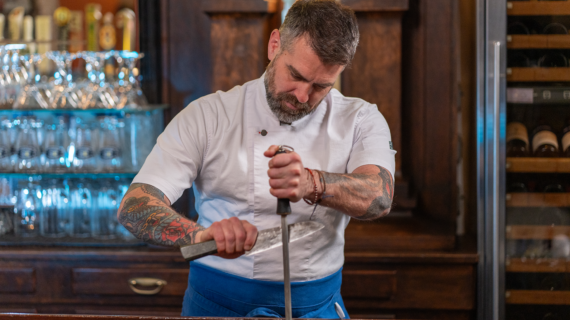

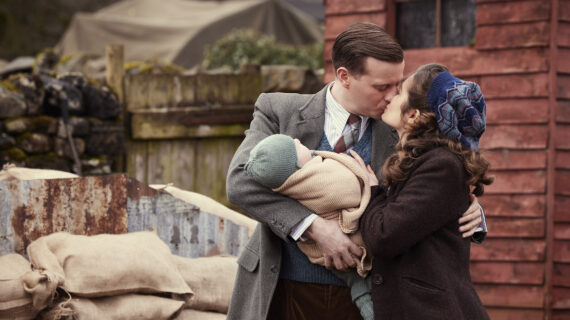

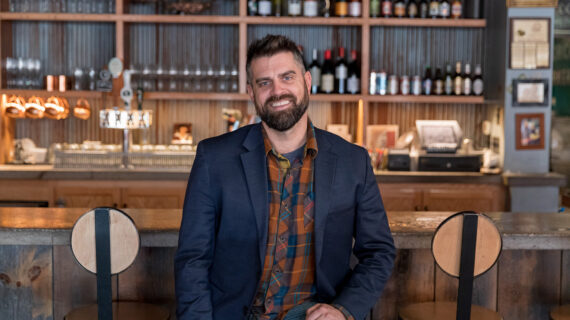
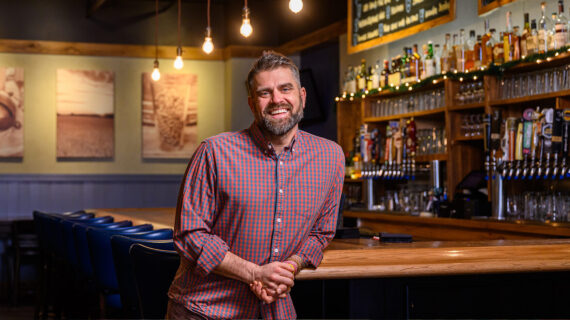
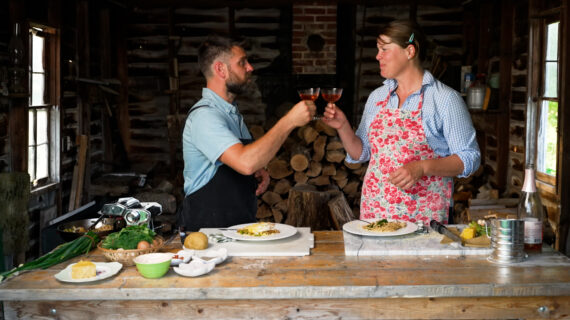
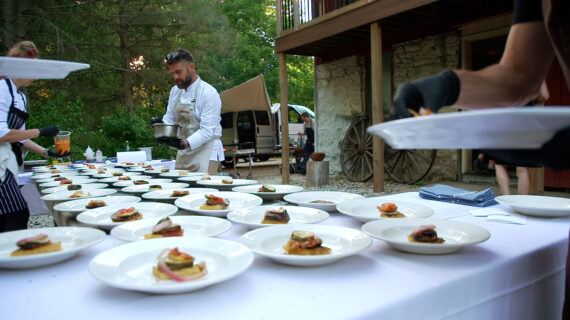
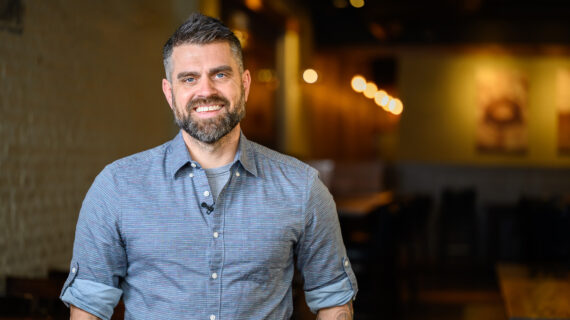
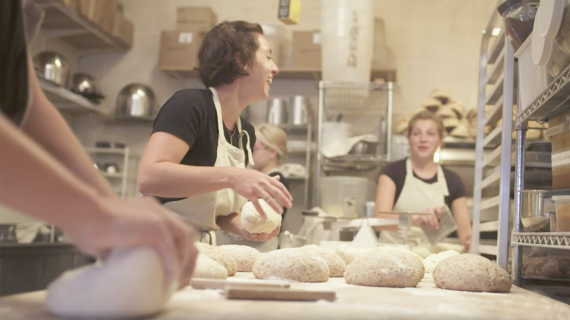
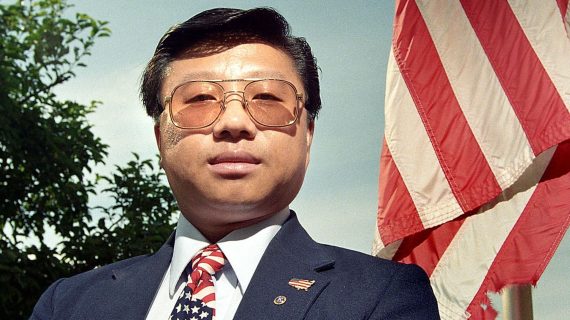


Follow Us